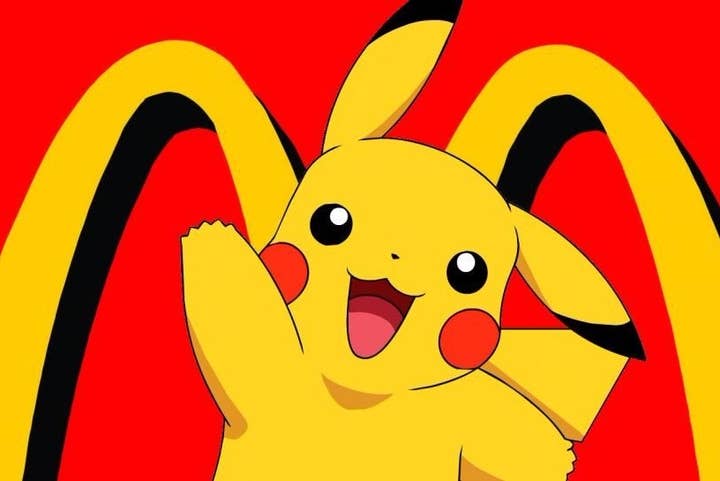Pokémon Go sponsorships will ease "that pressure" to dial up IAP
"It's tough to be disciplined and understand where you want to draw the line between monetisation and fun gameplay" - Niantic CEO John Hanke
Sponsorship deals have always seemed like a smart way for Pokémon Go to generate more revenue, but, according to Niantic CEO John Hanke, it's just as much about swerving the problems associated with in-app purchases.
Speaking to Gamesbeat recently, Hanke talked about the ever present "tension" between good game design and effective monetisation using the in-app purchase model. "It's tough to be disciplined about it and understand where you want to draw the line between monetisation and fun gameplay," he said.
"I grew up with computer games and video games. I love making them and playing them. We wanted to always preserve the integrity of game design if possible. We felt like it would be great to be able to complement IAP with a sponsorship model that was economically strong, economically viable, to take a bit of the pressure off IAP so that we could protect ourselves from ourselves.
We wouldn't have to cave to that pressure to dial it up a bit more."
"I grew up with computer games and video games... We wanted to always preserve the integrity of game design if possible"
This is particularly relevant when working with a longstanding, family-oriented IP like Pokémon. At GDC last year, Warner Bros. Interactive's Greg Ballard talked to GamesIndustry.biz about the difficulty of taking its Lego games to mobile, an environment dominated by free-to-play games that use IAP.
"Nobody has really unlocked the secret box of how to monetise kids in a free-to-play environment," he said. "With that brand, and how carefully guarded it is - not just by Lego, but by Warner on behalf of Lego - we want to make sure that, if we ever go down that path, we are extremely careful in how we do it.
"So you take the two: free-to-play is difficult to do to begin with, but doing it with excellent standards regarding how to behave with kids, those are pretty big hurdles."
Sponsorship is one way that Niantic believes it can clear those hurdles, and it already has a working knowledge of how that process can work from its previous game, Ingress. Pokémon Go launched in Japan with McDonalds already onboard as a partner, and Hanke said that Niantic is talking to "a bunch of other businesses" about similar deals elsewhere in the world - that includes multinational companies like McDonalds, and local businesses that are already benefiting from the game. Exactly how much those deals could be worth is not public knowledge, but the estimates of both Pokémon Go's reach and its revenue are hugely impressive.
"It's promising," Hanke said, which may prove to be an understatement. "People have been talking about ads in video games for a long time. But this is a case where, because you're able to draw people to physical locations, you can do something that not too many other forms of advertising can do. We're excited about it.
"We did early studies on that back in the Ingress days. Gamers will memorise the locations of these local businesses, they'll visit them more frequently, and they'll make purchases when they're there. Then you see that ad hoc validation from all the small businesses that have adapted that strategy themselves, just buying lures through in-app purchases and applying them to Pokéstops nearby. Some of them have published ROI metrics around that. There are how-to guides for businesses about how to use Pokémon. That's really cool."
"Because you're able to draw people to physical locations, you can do something that not too many other forms of advertising can do"
Exactly how successful this revenue strategy proves to be will be of great interest to Nintendo, which has made no secret of its concerns over combining its revered IP with the free-to-play business model. Nintendo does not own the Pokémon IP outright, of course - as its investors were sorely disappointed to learn - but the possibility of generating substantial revenue while taking "a bit of the pressure off IAP" will be attractive when it comes to its future mobile games - most of which will be free-to-play.
Whether sponsorship deals will be enough to keep Pokémon Go among the mobile market's top earners, however, is another matter. Last week, Rob Fahey cast doubt on the ability of Niantic's game to retain its huge userbase beyond the next few months.
"I could be wrong - I'd be very happy to be wrong, in fact - but my sense of where Pokemon Go is headed is that, absent some dramatic updates and changes from Niantic in the coming weeks, the game is destined to be a fad. It will achieve its objective for Nintendo in some regards, establishing the value of the firm's IP on mobile and probably igniting interest in this year's upcoming 3DS Pokemon titles, but in the broad scheme of things it's likely to end up being a fun summer fad that never converts into being a sustainable, long-term business."

